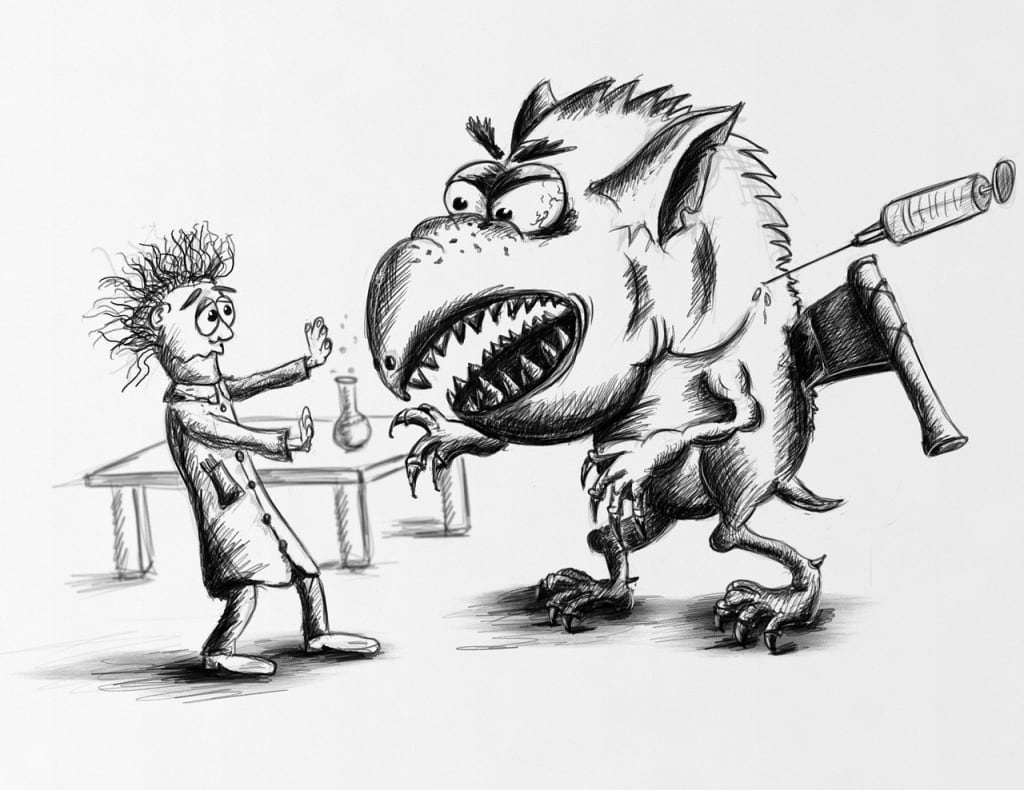Dissecting the Myth: Unraveling the Truth Behind the Russian Sleep Experiment
Separating Fact from Fiction in a Tale of Scientific Intrigue

The terrifying story of scientific curiosity gone wrong in The Russian Sleep Experiment has enthralled viewers. This story, which is said to take place in Soviet-era Russia, depicts a horrifying image of human test victims who are driven insane by an experimental chemical meant to cause sleep deprivation. But when you read it more closely, you start to doubt this story's authenticity, which makes you question its trustworthiness and sources.
Origins of the Story:
The story begins with a Russian researcher discovering a horrifying scene in a room where an experiment gone catastrophically wrong: mangled dead and insane survivors. Readers' curiosity and conjecture have been piqued by this realistic portrayal of gruesome experiments, which immerses them in a realm of human depravity and scientific intrigue.
Scientific Context:
Among military nations, the search for stimulants to increase human endurance was not unusual in the late 1940s post-war era. Methamphetamine and amphetamine were two medicines that both the Axis and the Allied forces tested with to keep soldiers alert and combat tiredness. Still, it is implausible to think that a gas could maintain alertness for such a long time, as was the case with the Russian Sleep Experiment.
Debunking the Myth:
Although the novel has a gripping plot, there are a number of contradictions and unbelievable details that call into question the veracity of the account. The Russian Sleep Experiment seems more like a work of fiction than a true story, from the ludicrous charges of cannibalism and self-mutilation to the lack of supporting evidence in historical accounts.
Scientific Skepticism:
Seen critically, there are obvious contradictions between accepted medical and scientific knowledge and scientific principles. Prolonged wakefulness and psychotic behavior are among the purported effects of the experimental gas that defy the laws of pharmacology and human physiology. Furthermore, there isn't a single example in the scientific literature that suggests a gas exists that can cause such strong reactions.
Plausible Explanations:
Even while the story could pique readers' interest, more logical interpretations can be found in tenable explanations based on scientific facts. Though uncommon, diseases like Morvan's Syndrome or Fatal Familial Insomnia can shed light on possible causes of extreme sleep disturbance and psychosis. These circumstances, however, are not consistent with the dramatic events portrayed in the Russian Sleep Experiment.
Lessons Learned:
As we unravel the myth of the Russian Sleep Experiment, we are reminded of the importance of critical thinking and skepticism in evaluating extraordinary claims. While tales of scientific curiosity and human endurance may captivate our imagination, discerning fact from fiction requires scrutiny and evidence-based inquiry.
The Evolution of Urban Legends:
Because they can appeal to both societal anxieties and our innate fears, urban tales are quite appealing. With its themes of imprisonment, isolation, and the degradation of humanity, the Russian Sleep Experiment speaks to our deepest concerns about mishandled scientific experiments. As a result, it has established itself as a mainstay of Internet mythology, spread by creepypasta websites and online forums.
Societal Implications:
The Russian Sleep Experiment presents ethical concerns about scientific research ethics and information sharing in the digital era, in addition to its entertainment appeal. It's getting harder to tell fact from fiction in a time when sensationalism and false information are widely shared online. The narrative acts as a warning, emphasizing the perils of blind acceptance and the value of skepticism.
Educational Opportunities:
Despite being a work of fiction, the Russian Sleep Experiment offers a chance for critical analysis and multidisciplinary investigation. The narrative can serve as a starting point for talks about media literacy, scientific ethics, and the psychology of fear among educators. Students can develop a healthy skepticism toward sensationalized narratives and sharpen their analytical abilities by critically interacting with the narrative.
Conclusion:
The Russian Sleep Experiment is a cautionary tale about the power of narrative and the temptation of sensationalism that has become part of urban legend and online history. Although readers may still find the story intriguing and unsettling, its beginnings are still shrouded in mystery and suspicion. Let's approach these stories with a critical eye and a dedication to finding the truth as we make our way through the huge expanse of online storytelling.
About the Creator
Abdur Rahman
Hey there! I'm passionate about writing in science, horror, and fantasy genres. I'm all about supporting fellow writers,
so feel free to leave a tip! It helps fund my book purchases and submission fees for literary magazines.






Comments (1)
Great job!